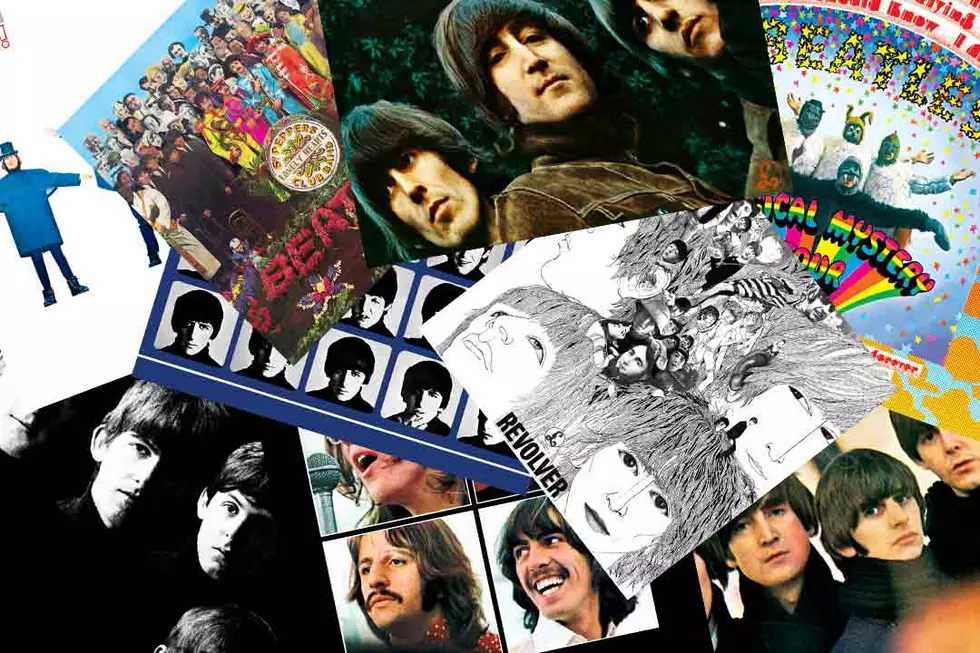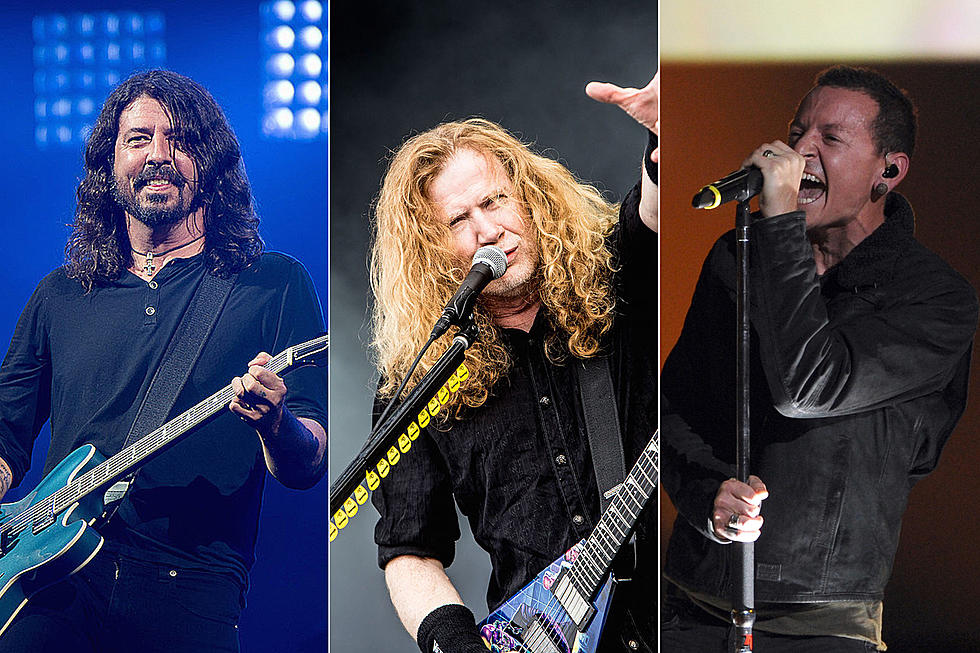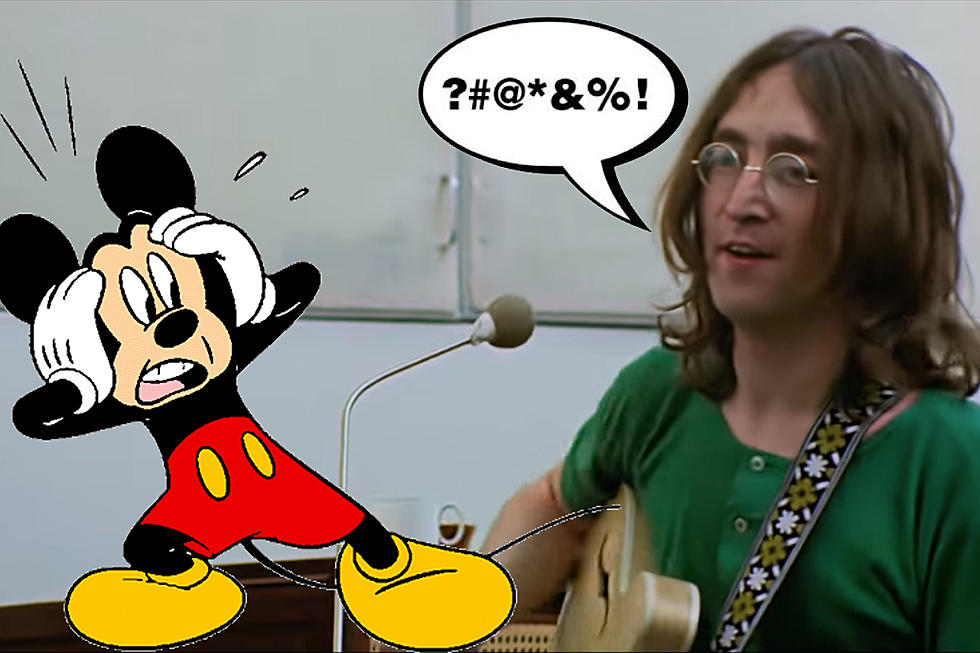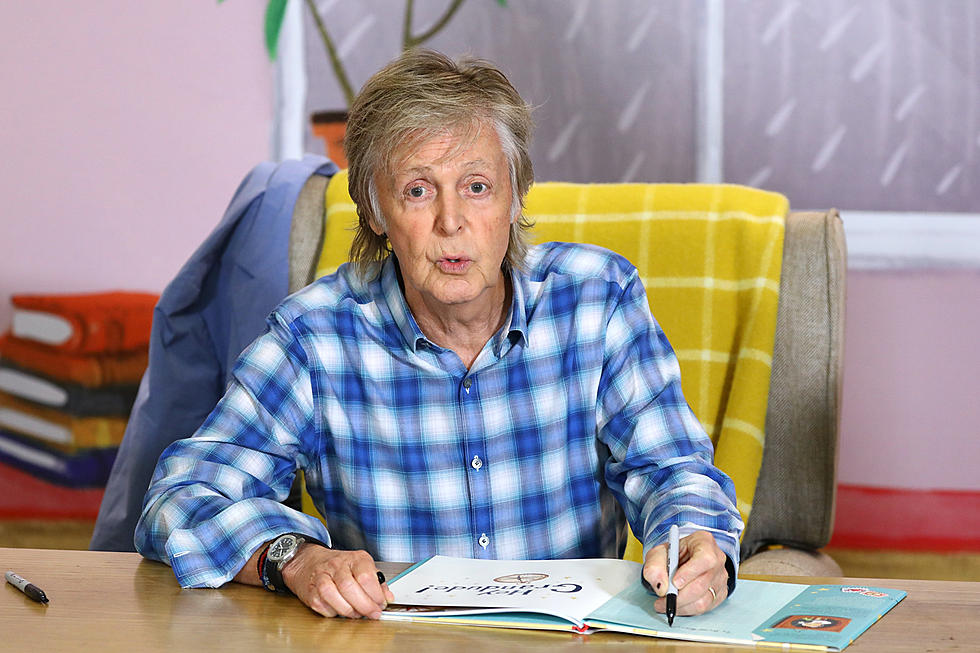
Underrated Beatles: The Most Overlooked Song From Each Album
Even a group as celebrated as the Beatles has a few tucked-away moments of brilliance.
Like most classic-rock era bands, their biggest hits tend to get played into rote memory, while adjacent album cuts may languish in relative obscurity. In cases like 1968's The Beatles, they released so many songs in a rush that the project can become overwhelming. With others, including 1970's Let It Be, chart-topping hits tend to suck up all the oxygen.
That said, in still other cases, the most overlooked song from each album can be pretty well known. That's a function of the Beatles' place in rock history, as this music has sparked some of rock criticism's most probing explorations. (In fact, one of these tracks sparked a comparison in London's largest newspaper to the early modernist composer Gustav Mahler.)
John Lennon's role as the group's early principal songwriter meant he inevitably dominated this list – though key tracks from Paul McCartney and George Harrison find a home, too. Together, they created a discography that yielded 20 No. 1 Billboard smashes, 34 other Top 10 finishers, and a few notably underrated moments along the way. Keep scrolling for a look back at the most overlooked song from every Beatles album.
"There's a Place"
From: Please Please Me (1963)
The first thing recorded for Please Please Me, "There's a Place" is the best early Beatles song never played on the radio. There's a thrilling middle eight and an explosive ending, all in service of a nifty prototype Brian Wilson-like theme: "There's a place I can go, it's in my mind."
"Not a Second Time"
From: With the Beatles (1963)
"Not a Second Time" drew high praise from a London Times critic, who thrilled to its harmony, melody, "flat submediant key switches," major tonic sevenths, and (most memorably) a final chord progression which echoed Mahler in Song of the Earth. Lennon, the song's principal songwriter, died having no idea what William Mann was talking about. "It made us acceptable to the intellectuals," he allowed in Anthology. "To me, I was writing a Smokey Robinson or something at the time."
"You Can't Do That"
From: A Hard Day's Night (1964)
Finding an overlooked song on this Beatlemania-era album is no easy task: Six of its 13 songs appeared on singles, and all but three were prominently featured in the Beatles' splashy big-screen debut. "You Can't Do That," filmed during the film's concert sequence, was a very late cut – likely because of Lennon's dark subject matter. It's proof that there was danger – very real danger – in his music the whole time.
"No Reply"
From: Beatles for Sale (1964)
An early glimpse of the pain that, up until this point, had been largely obscured by first-blush imagery involving hairstyle and yeah-yeah-yeahs. Lennon reportedly wanted to sing the high harmony, handled here by McCartney, but couldn't coax his voice there because of wear and tear from the band's then-excessive touring schedule. "No Reply," a sad and special triumph, was better for it. The result is a key initial step down a path of personal revelation and unbridled honesty that would find its creative and artistic peak on Plastic Ono Band six years later.
"I Need You"
From: Help! (1965)
One of George Harrison's first compositions laid bare his feelings in a way few other of his songs ever did – with or without the Beatles. As a group, they'd finally begun exploring deeper adult emotions like doubt, sexual yearning and alienation, but Harrison would soon veer away with a head-long dive into Indian philosophy and sounds. That changed his narrative outlook forever, reserving a special place for the starkly longing "I Need You." It's made complete with some fooling around on a new guitar volume pedal, which was also put to good use on Lennon's non-album track "Yes It Is."
"Girl"
From: Rubber Soul (1965)
Lennon allows himself to experience both the pleasure and the pain of love, sighing with a barely contained sense of sexual anticipation. There's also an embedding wink: He later revealed that the insistent "tit-tit-tit-tit" backing vocals were about just what you think they are.
"And Your Bird Can Sing"
From: Revolver (1966)
The always-competitive Lennon seemed to be directing this at the Rolling Stones, with a title referencing their muse, Marianne Faithfull. Whatever his intent, it remains a thrilling orchestra of guitar fury. Joe Walsh reportedly struggled for hours one day trying to mimic "And Your Bird Can Sing," before his brother-in-law Ringo Starr revealed that it wasn't merely one guitarist, but McCartney and Harrison playing in unison.
"Getting Better"
From: Sgt. Pepper's Lonely Hearts Club Band (1967)
Fans rightly relish Lennon's drive-by cynicism on tracks like this one from McCartney. As he often will, McCartney threatens to drift away while the soaring chorus builds behind him. But no sooner does he sing "it's getting better all the time," then we have Lennon dropping anchor: "Can't get no worse." It might not be the best example of this brilliant balancing act — for that, head over to the worn copies of "We Can Work It Out" — but "Getting Better" certainly ranks as an often-overlooked favorite in the genre. Great guitar riff, too.
"Baby, You're a Rich Man"
From: Magical Mystery Tour (1967)
A terrific example of Lennon's psyched-out gobbledygook era, with lines about keeping "all your money in a big brown bag – inside a zoo." This grew out of an early demo called "One of the Beautiful People," probably inspired by Lennon's trip to a 1967 "happening" headlined by Pink Floyd that was dubbed the 14-Hour Technicolour Dream.
"Dear Prudence"
From: The Beatles (1968)
Not just one of Lennon's best ballads, but one of his best songs of any kind. "Prudence" was Mia Farrow's sister, a fellow traveler on the Beatles' ill-fated trip to India. Donovan was there too, and taught John a new fingerpicking style. Lennon then showed he could out-McCartney McCartney with these lyrics: The sun is up, the sky is blue — it's beautiful, and so are you. It's a rare moment of simple beauty for someone who didn't often allow himself to express such open-hearted emotion.
"Hey Bulldog"
From: Yellow Submarine (1969)
A bellwether track. Lennon and McCartney collaborated in the studio to complete "Hey Bulldog" while film crews recorded it all for the very first time. After this, they'd issue a band-titled album that was anything but, then make the disastrous decision to turn the recording of their first 1969 album into a film.
"You Never Give Me Your Money"
From: Abbey Road (1969)
One of the initial song-cycle concepts by McCartney. Too bad he was just getting started. By the time we get to Wings' Red Rose Speedway a couple of years later, McCartney had transformed a pretty good idea into nothing more than a easy way to tidy up his work station. But those mashed-together edit jobs of half-finished ideas can't tarnish this terrific effort. "You Never Give Me Your Money" manages to fit in all of the personality, verve and specificity of each band member — while deftly recognizing, by the final repeated chorus, both the hopeful optimism and the crashing cynicism of the '60s.
"I Me Mine"
From: Let It Be (1970)
Taut and unjustly forgotten, "I Me Mine" is special if for no other reason than its role as one of the few songs Phil Spector didn't muck up on the original Let It Be project. Here, his swirling strings add the perfect portent. Meanwhile, Harrison returns to one of his favorite subjects: How we're all really bastards, deep down. This is also the last song the Beatles recorded prior to their breakup, and in the same configuration as their mid-'90s reunion — without John Lennon.
More From 107.7 WRKR-FM










